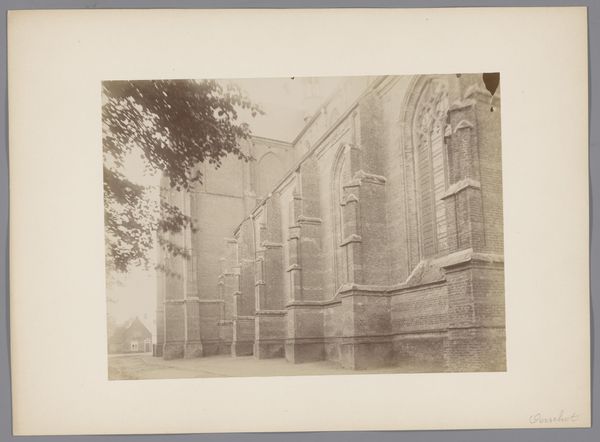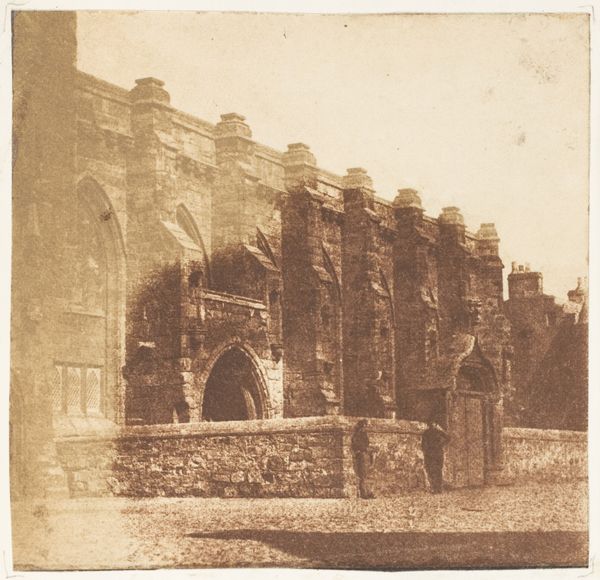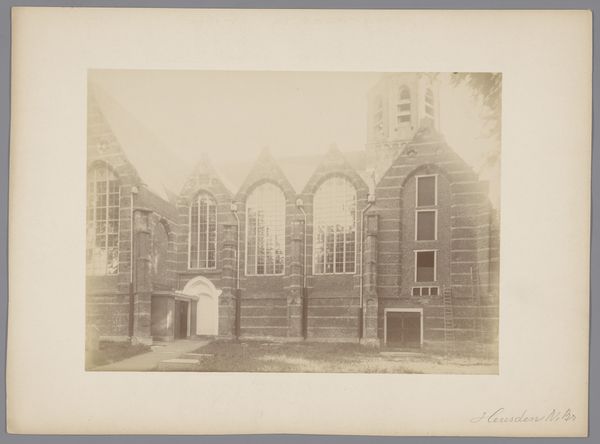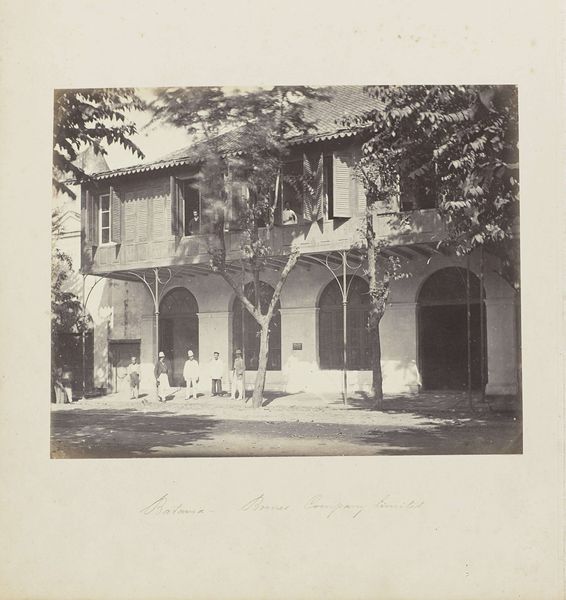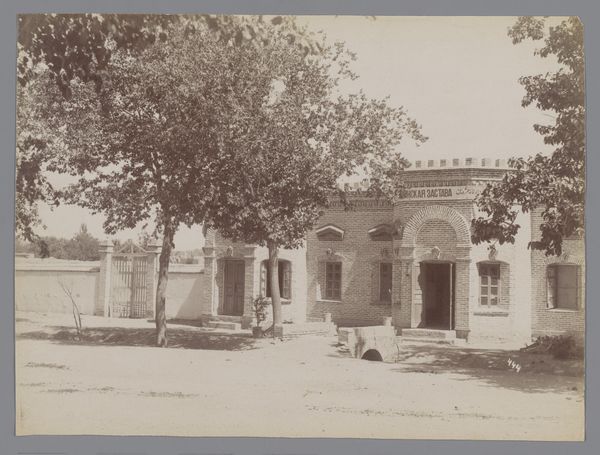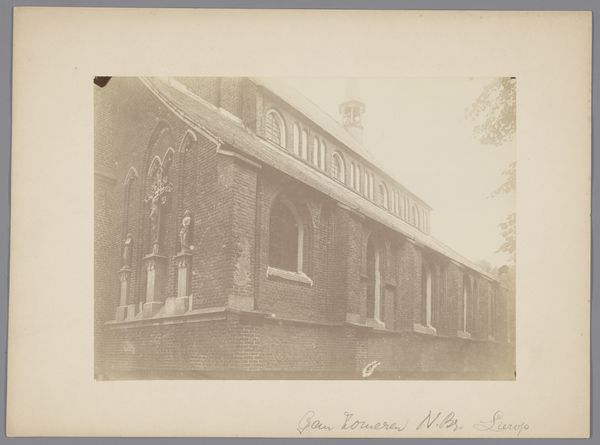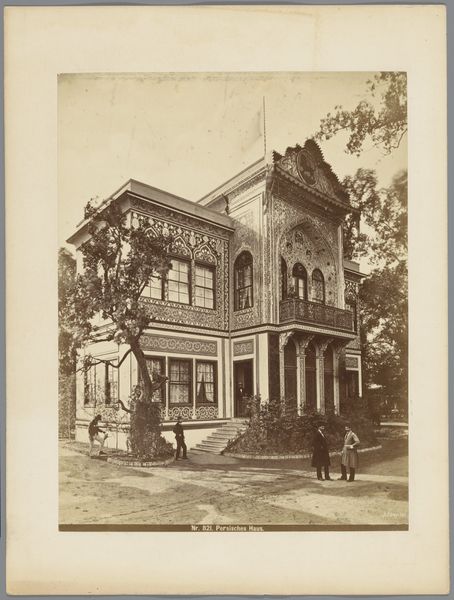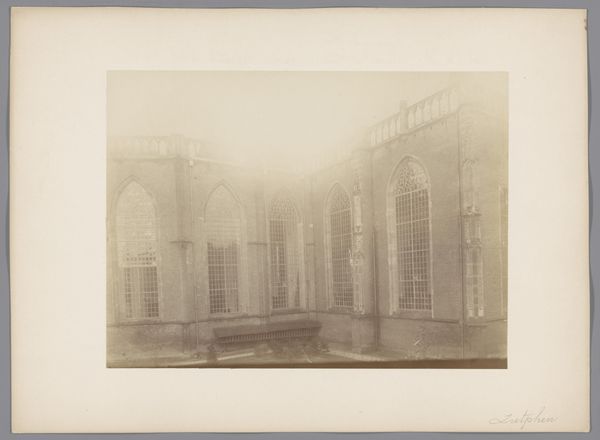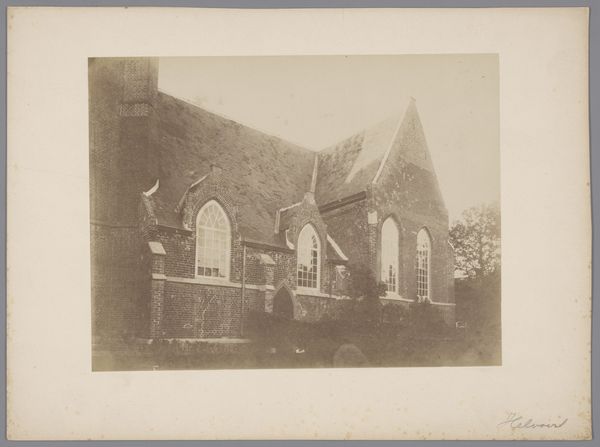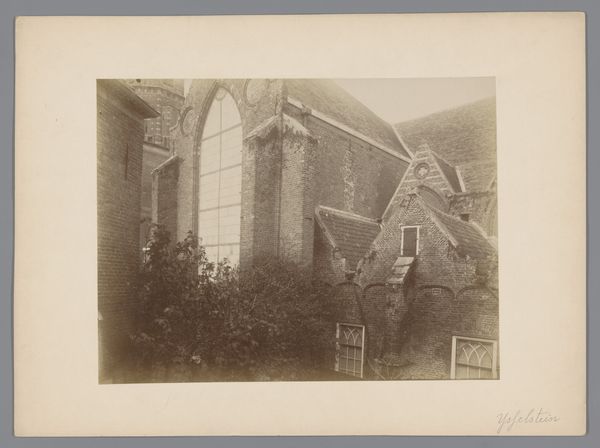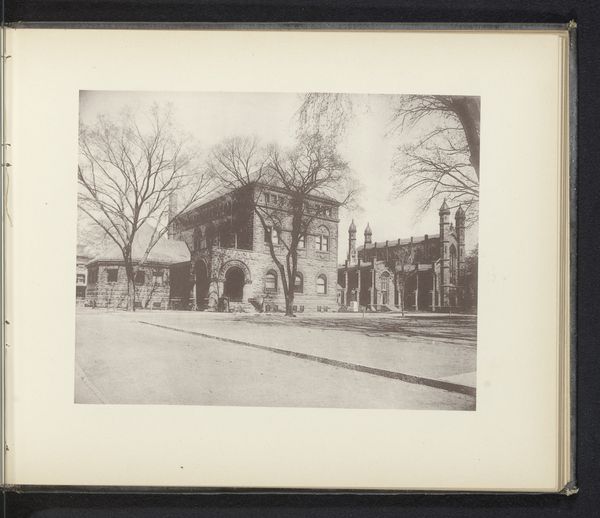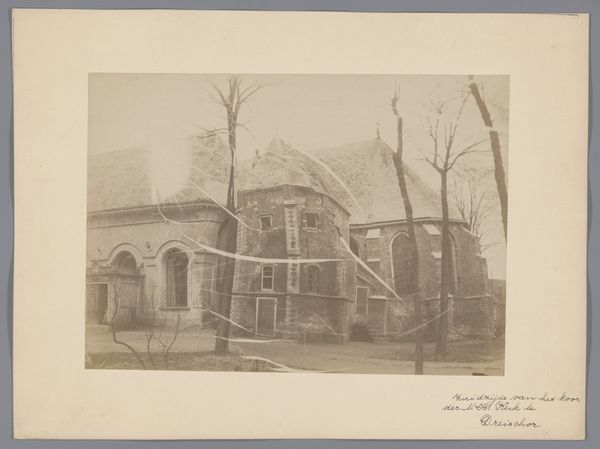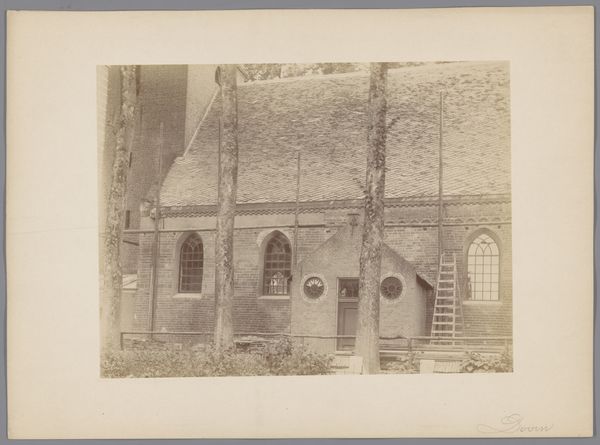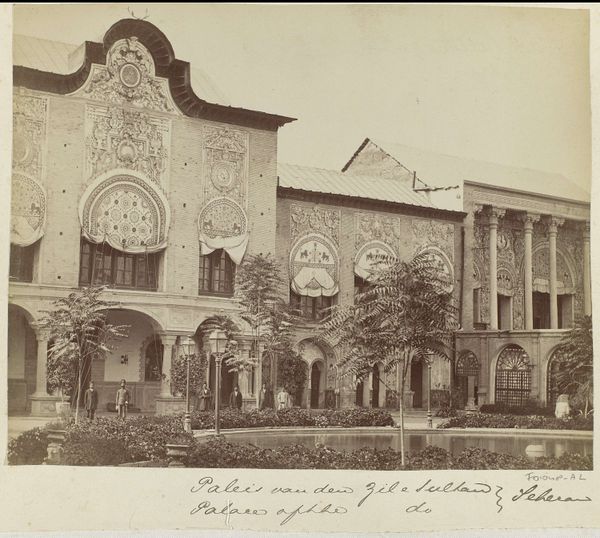
photography, architecture
#
landscape
#
photography
#
orientalism
#
islamic-art
#
architecture
Dimensions: height 235 mm, width 297 mm, height 251 mm, width 317 mm
Copyright: Rijks Museum: Open Domain
Editor: So, we're looking at "Exterieur van de Alai Darwaza bij het Qutb-complex, Delhi," a photograph by Samuel Bourne taken between 1863 and 1866. The detail is amazing! What stands out to you about this photograph? Curator: I'm struck by the context of its production. Think about the labor involved. Bourne, a British photographer, travels to India during the colonial period. He's using cumbersome photographic technology – glass plate negatives, a portable darkroom. The resulting image isn’t just a representation of the Alai Darwaza; it’s a document of colonial enterprise, capturing and consuming a specific vision of the East. Editor: So you're saying the photograph itself is a product of a specific system of power? Curator: Precisely. And the "Orientalist" style reinforces that. The aesthetic choices - the framing, the lighting, likely staged elements - were made to appeal to a Western audience and confirm their existing ideas about the ‘exotic’ East. It is consumed as information about this part of the world and it does the labor of enforcing specific beliefs. Look closely at the photograph itself; what materials would have been needed to build this magnificent structure? What labor would that entail? Editor: I never considered the photographer's role in perpetuating those narratives! All of that exquisite detail required so much physical work, both by the original artisans and Bourne in capturing it! Curator: The photograph itself becomes a commodity, traded and consumed back in Europe. What seems like a neutral depiction is loaded with the politics of representation. And who profits from it, and who toils? It really urges a reconsideration of who benefitted from such an image. Editor: Wow. I am looking at it with different eyes now. Curator: It reveals that photography itself is deeply enmeshed within a framework of materiality, labor, and economic consumption. Editor: That's fascinating. Thinking about photography less as a simple snapshot and more as a material product of colonial power shifts my entire perspective. Thanks for that insight!
Comments
No comments
Be the first to comment and join the conversation on the ultimate creative platform.
